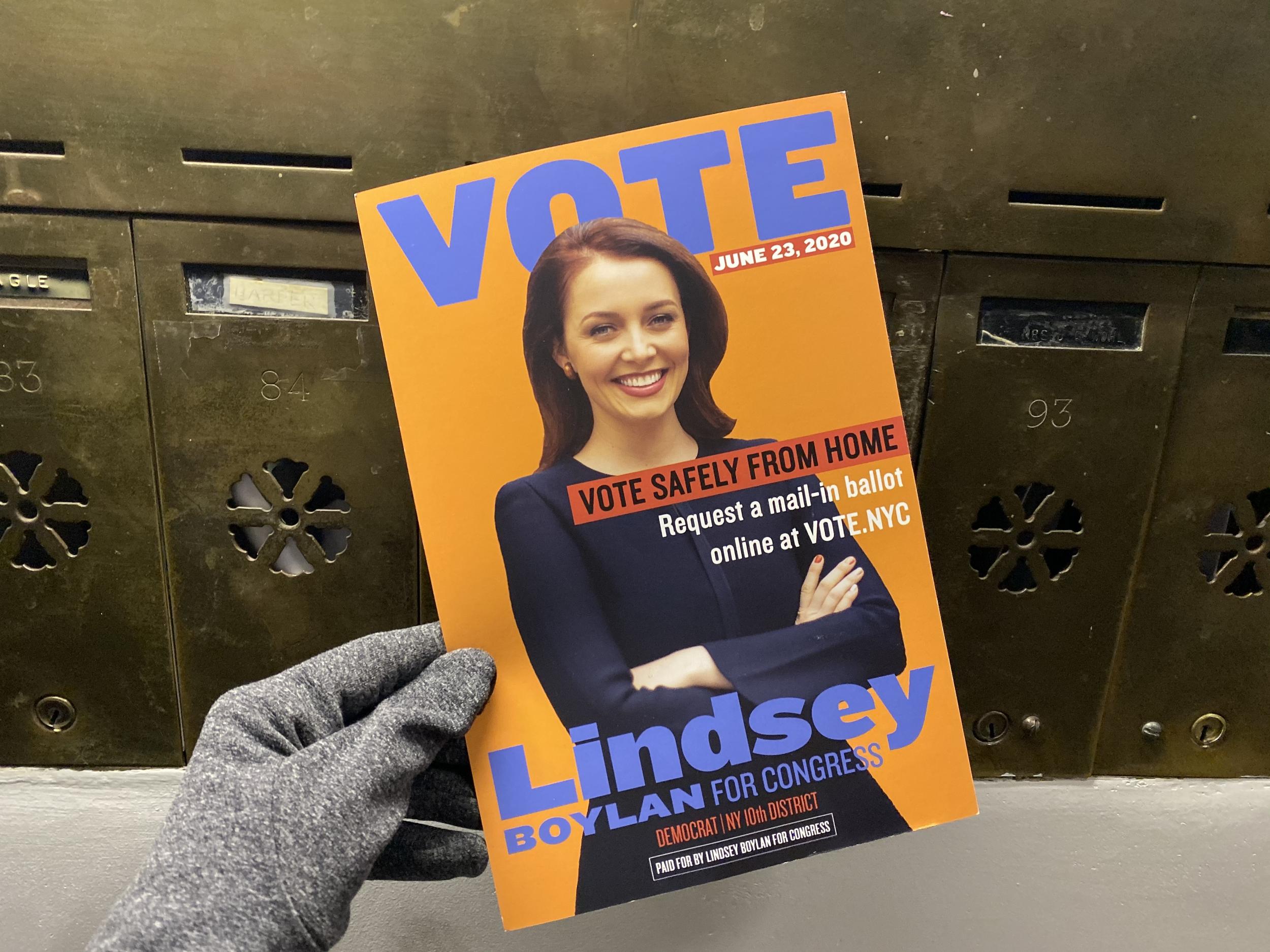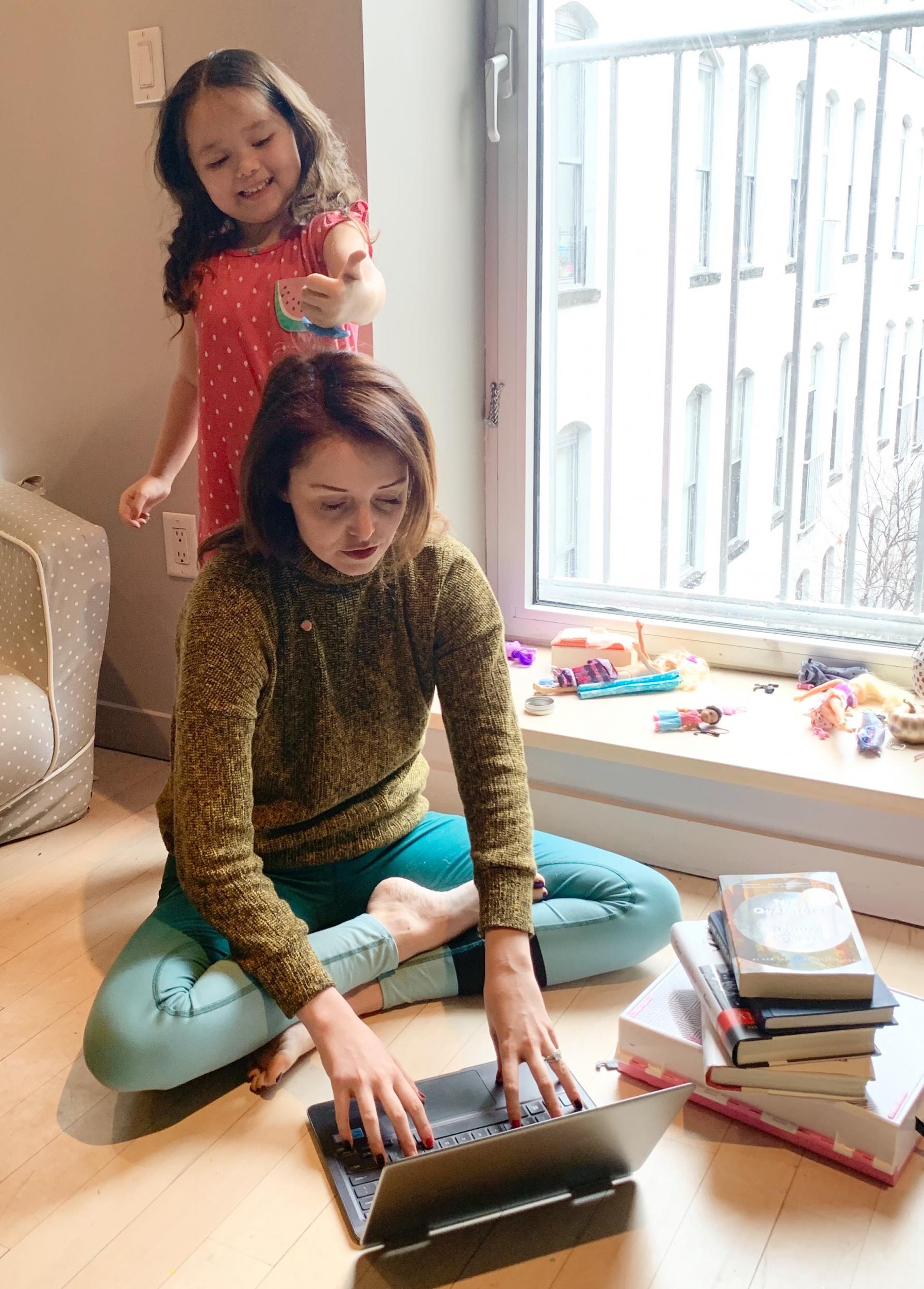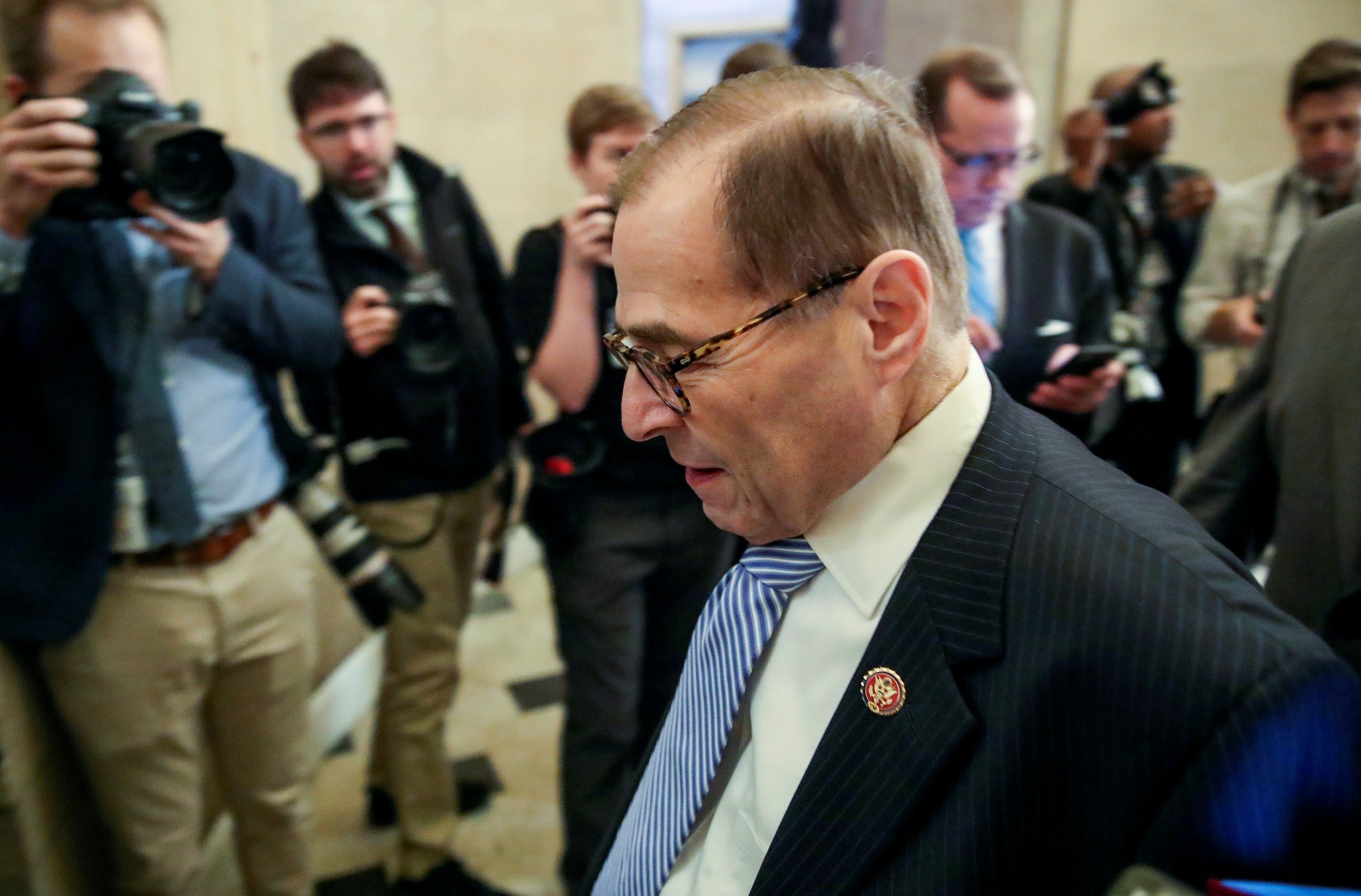Don’t kiss the baby: What it’s like to run for office in the midst of a pandemic
A primary race in New York may give some insight into what campaigns will look like in the shadow of the coronavirus, and whether the pandemic has shifted the political debate, writes Richard Hall

Your support helps us to tell the story
From reproductive rights to climate change to Big Tech, The Independent is on the ground when the story is developing. Whether it's investigating the financials of Elon Musk's pro-Trump PAC or producing our latest documentary, 'The A Word', which shines a light on the American women fighting for reproductive rights, we know how important it is to parse out the facts from the messaging.
At such a critical moment in US history, we need reporters on the ground. Your donation allows us to keep sending journalists to speak to both sides of the story.
The Independent is trusted by Americans across the entire political spectrum. And unlike many other quality news outlets, we choose not to lock Americans out of our reporting and analysis with paywalls. We believe quality journalism should be available to everyone, paid for by those who can afford it.
Your support makes all the difference.When Lindsey Boylan began her primary campaign a year ago, she knew she faced an uphill battle. Her opponent, Democratic heavyweight Jerry Nadler, was first elected to Congress in 1992 and has been a fixture of New York politics ever since.
But in recent years, progressive candidates have proven adept at challenging the party’s old guard. Insurgent campaigns have won shock victories with strong ground games and community outreach. Ms Boylan’s plan was simple: she was going to outwork her opponent.
Then came the coronavirus, and the 36-year-old newcomer was faced with the prospect of an entirely different campaign to the one she had planned for. As it turns out, running for office in the midst of a pandemic is as strange as it sounds.
“We've shifted in how we connect with people. But I would say if anything, we're connecting even more because people really do need help now,” she tells The Independent from her home, which is now also her campaign headquarters (her team was looking for office space when Covid-19 arrived).
With the New York primary races due to take place next month, Ms Boylan’s own insurgent campaign could answer key questions about the extent to which the political landscape has been affected by the coronavirus. It could also give some clues about what campaigning might look like in November’s presidential election if lockdown measures are still in place.
“In terms of the issues that motivate the campaign, it hasn't changed at all — it has just magnified them,” says Ms Boylan, who has never held elected office before.
“If we look at who's been hit the hardest by this pandemic, physically, mentally and economically, it's the people who are in the most vulnerable positions in our society and our district. So we have to find ways to change that and help people more.”
Ms Boylan, a former state economic development and housing official under governor Andrew Cuomo, concedes that she has had to adapt her strategy on a practical level. For one, she is speaking to The Independent from her daughter’s bedroom, surrounded by dolls. Like lots of parents, she and her husband are now juggling their day jobs with caring for her.
“It's very challenging. But at the same time, there will probably not be another time in our lives where I could be running a congressional campaign and then walk in the other room and see her. So it's not that I would choose this, this in any way, shape or form, but it's a real privilege to get to be a mom.”
Though she may not be able to press the flesh in the traditional sense, she canvasses by phone — fielding and making dozens of calls a day. She holds community meetings on the video conferencing service Zoom, and weekly meetings on Instagram Live which will often include someone from the community. Predictably, the pandemic is taking centre stage in most of those conversations.
“Every day I'm talking with people who have yet to receive their unemployment benefits, they're afraid that they'll lose their Medicaid benefits. I've spoken with someone who has been released from the hospital and is now home alone. I've talked with people who can’t afford their rent and don’t know what they're going to do,” she says.
In early April, New York became the epicentre of the global coronavirus pandemic. At the height of the outbreak here, the state was recording 1,000 deaths a day and hospitals were overwhelmed. Ms Boylan’s campaign began a year ago with leafleting and face-to-face canvassing, but the lockdown measures put in place to prevent the spread of the virus has changed all that. Her five-person team now mostly works remotely. Her Twitter feed has become a focal point of her output, where she posts videos and jibes directed at Mr Nadler.
“I'm actually an introvert, so I have no problem with this forum,” she says of her online campaign. “I got past that idea of having a screen between me and the people pretty early because I realised that the content we would make even before this crisis had a pretty broad reach. And if I'm doing something that makes people feel less alone and makes people feel like they have an advocate in me, then I have no problem with it.”
The pandemic has already had a significant impact on the nation’s politics. States across the country are rushing to figure out how to conduct an election and campaign while the virus still poses a potent threat. Here in New York, the presidential primary that will be held alongside Ms Boylan’s primary was originally called off, only for a district court judge to reinstate it. Many states have postponed presidential and congressional primary races, and absentee voting has been expanded across the country. Florida went ahead with its election on March 17, only for two poll workers to later test positive for the virus.
The practical changes that might be needed to address voting in the shadow of the pandemic have been politicised by Donald Trump, who has raged against moves to expand absentee ballots, claiming without evidence that they encourage fraud (research has shown that mail-in voting does not favour one party over the other). On Wednesday he threatened to withhold funding for Michigan and Nevada — both states with Democratic governors — for mailing absentee ballot applications to voters.
Besides the practicalities, there are also questions about how the economic fallout from the coronavirus will change the political debate. Some have speculated that voters may be more willing to accept radical solutions to issues like health care and inequality — that might favour insurgent campaigns.
Ms Boylan’s pitch should be familiar to anyone who paid attention to the wave of successful insurgent challengers who ousted establishment Democrats in 2018 primary races. Perhaps the most well-known of them was Alexandria Ocasio-Cortez (“AOC”), the then 28-year-old activist and former bartender who defeated Representative Joseph Crowley, and Ayanna Pressley, a Boston city council member who beat 10-term incumbent Michael Capuano.
“I started out as a real believer in my party, but something has changed in our national discourse. I just don't think that our party is doing enough to respond to the needs of real people,” says Ms Boylan.
“I am absolutely a progressive, and for me that means someone who's focused on the existential issues of our day, which are extreme inequality and climate change. So where that puts me in line with women like Ayanna Pressley or AOC, I'm all for it.”

At the same time, she says she is a little reluctant to accept the comparison, “not because I don't admire what these women have achieved, but more because when I go to Washington, I know that my biggest job is to represent my community.”
Like those campaigns, Ms Boylan has positioned herself as an antidote to the ineffectiveness and complacency of establishment politics, which she argues is personified by Mr Nadler. She has criticised the 72-year-old chairman of the House judiciary committee for being too timid in his pursuit of impeaching Donald Trump — something the congressman’s campaign has touted as his strength.
Pandemic or no pandemic, Ms Boylan still faces a huge challenge in defeating Mr Nadler. The longtime congressman, known for his civil liberties activism, has already won a number of high-profile endorsements, among them Elizabeth Warren. “His record shows that he doesn’t just know how to fight, he knows how to win,” she said on Tuesday.

Then there is funding. Ms Boylan has raised more than $750,000 so far — an impressive amount for a first-time challenger. According to Politico, much of those contributions came from donors in the financial industry, including "many from employees at investment bank Allen & Company, where her husband works." She donated around $80,000 of that money herself, and has committed to not taking donations from corporate PACs and the fossil fuel industry. But Mr Nadler’s profile will give him a significant advantage in fundraising. According to the last fundraising report, his campaign has raised more than $1 million. How this advantage will play out in the middle of a pandemic is unclear.
Despite the obstacles, Ms Boylan says she just got tired of waiting.
“I really got tired of the way that our political system works. Our politics in this city and this state are largely still run by a small group of men. The biggest generational issues we have are very connected to this public health crisis, things like extreme inequality and climate change,” she says.
“I didn’t not see really anyone who represented me doing enough to respond to either of those things. So I decided to do it myself.”
Join our commenting forum
Join thought-provoking conversations, follow other Independent readers and see their replies
Comments